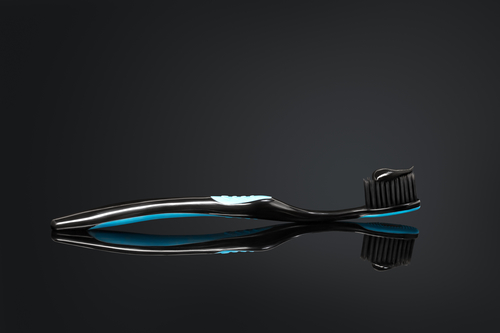
While we might not have foreseen the rise of dental fads, social media has taken us all to impossible-to-predict places. With the popularity of DIY teeth whitening (among other home treatments) rising on Facebook, Instagram and Pinterest comes the proliferation of less-than-healthy practices.
How can you tell whether something you’ve seen on the internet is really something you should try at home?
First off, you should always check in with your dentist before trying something new. While home remedies definitely seem appealing with their offer of low costs and “natural” ingredients, they can lead to tooth damage, so they’re usually not a good idea. Charcoal toothpaste is a newly popular practice that falls into this category.
If you’ve seen articles or photos featuring someone brushing their teeth with activated charcoal, you’re probably curious about what the heck is going on – and we’ve got the details below (including whether or not you should try it at home).
Why Are People Brushing Their Teeth with Activated Charcoal?
Activated charcoal toothpaste became popular for a few reasons:
- Whitening – DIY whitening has become extremely popular online, with different websites recommending the use of strawberries and baking soda, other fruit like bananas and apples, and now activated charcoal. Videos of activated charcoal used as toothpaste have become extremely popular on Youtube, with more than 11,000 video results.
- Detoxifying effects – Many years ago, in the early 1900’s, the World Health Organization declared activated charcoal a medication that should be used to treat poisoning or overdoses. Today, it is being heralded by some as a way to trap toxins and chemicals in the body, and some companies that make charcoal toothpaste claim that it can remove toxins from the mouth.
Wondering what’s so “activated” about this charcoal? It gains this qualifier once the charcoal has been combined with gas or an activating agent and a high temperature. This expands the charcoal’s surface area, leading to adsorption of certain materials. These materials are attracted to the charcoal’s surface, and it holds them in its pores to cleanse the surrounding area.
Dangers of Using Charcoal Toothpaste
Like so many easy, cheap answers, activated charcoal isn’t necessarily holding up its end of the bargain. Promises that it will whiten or cleanse teeth haven’t been proven by any research studies.
And beyond that, many experts are concerned about the safety of the practice – for a few reasons.
- It’s abrasive – This is a problem associated with many DIY products or whitening treatments performed with household ingredients. Enamel isn’t impervious to harm – if you use an overly abrasive toothpaste, it will erode your enamel. Without more studies being done to evaluate the abrasiveness of activated charcoal products, no dentist can confirm that it’s safe. Research has also shown that brushing with activated charcoal makes enamel rougher, which makes it more likely for bacteria to adhere to teeth and lead to plaque buildup.
- It doesn’t contain fluoride – Your toothpaste needs to contain adequate fluoride to protect your teeth from decay and erosion. Many charcoal toothpastes don’t contain enough fluoride to be effective anti-cavity tools.
- It probably doesn’t really work – There are so many factors at play when someone starts using a whitening toothpaste – especially if they’re publicizing the effects on social media. Before and after photos might show incredible results, but they aren’t always honest. In addition to photo editing, many people showing off remarkable results are pairing the DIY habit with professional whitening. Others are more excited about brushing since they are using a new product, so they brush more often and longer, which is the true cause of removal of surface stains (and which would happen with normal toothpaste as well).
So What Toothpaste Is Safe to Use?
To be safe, it’s best to use a toothpaste that has the American Dental Association Seal of Acceptance. This signifies that the product has been thoroughly researched and hits all the following points:
- Contains fluoride to provide effective cavity prevention
- May contain active ingredients to aid in the prevention of other dental problems, like reducing sensitivity, gingivitis or tartar
- Does not contain flavoring that may contribute to decay
- Has shown scientific evidence that indicates its safety and efficacy
If you’re looking for a new toothpaste, talk to your hygienist or Dr. Barton at your next exam for a personalized recommendation.
All this said – this is one toothpaste that contains activated charcoal that seems like it might be safe. This is called Black is White toothpaste and is made by Curaprox Inc. – but it doesn’t work exactly the way the other charcoal pastes are supposed to work. It contains an ingredient that coats tooth surfaces with a blue tint, which leads to a perceived whitening effect. It also contains fluoride and is not harmfully abrasive to enamel. We’re not endorsing it, but it does seem to be a bit different from its potentially dangerous colleagues.
Dalton General Dentist | General Dentistry Dalton | Dalton General Dentistry





